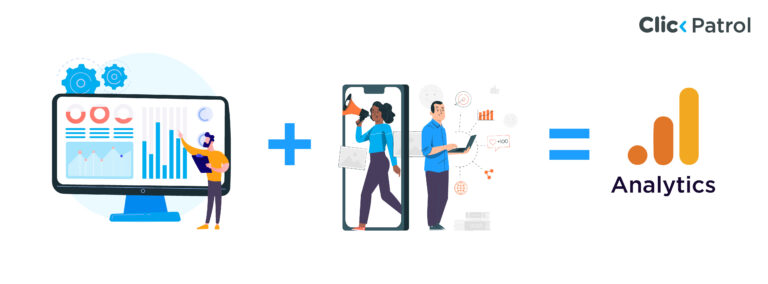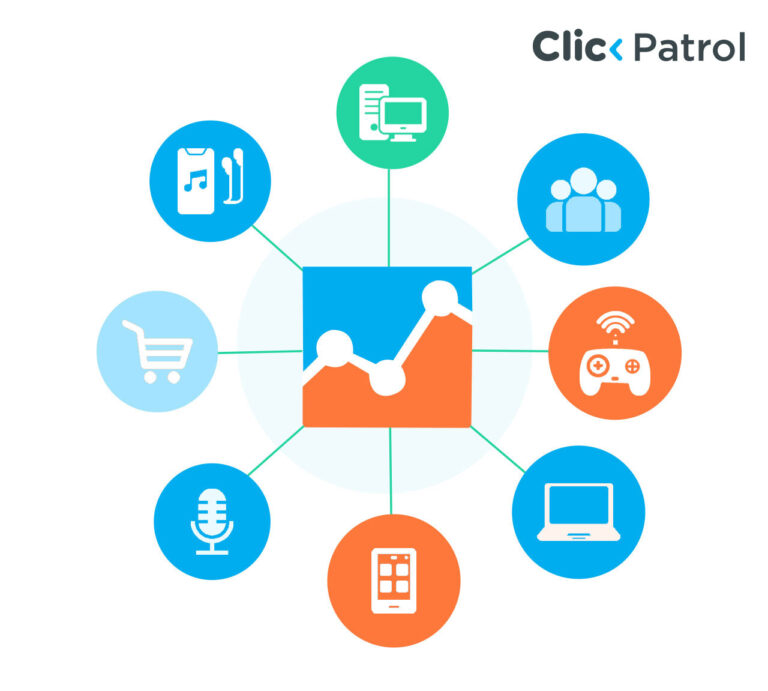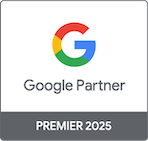
Top Tips For Bidding on Branded Keywords in PPC Campaigns in 2024
Abisola Tanzako | Apr 15, 2024

Table of Contents
Should you be bidding in branded keywords?
In the intensely competitive pay-per-click (PPC) advertising landscape, ensuring your brand stands out to potential customers is paramount. The most effective strategy to achieve this is bidding on branded keywords, which are search terms that incorporate your brand’s name or its variations and are integral to PPC campaigns. Bidding on branded keywords offers several advantages. It helps establish your brand’s authority, safeguards your brand’s position, and fosters trust. When users search for terms linked to your brand, your ads will be prominently shown in the Search Engine Results Pages (SERPs).
This visibility not only cultivates trust and recognition among users but also stops competitors from targeting the exact keywords to divert traffic. This article aims to guide you through the meaning of branded keywords, why you should bid on them, the workings of keyword bidding, and the top tips for bidding on branded keywords.
What are branded keywords?
Branded keywords refer to search terms or phrases directly linked to your brand. This includes your brand name, variations, slogans, or even the names of your products or services. These keywords are integral to enhancing your brand’s online presence and recognition. Branded keywords are not solely about your company’s name. They also capture the range of products your company retails and the diverse services it offers.
Why bid on branded keywords?
Bidding on branded keywords presents a multitude of significant advantages that can significantly enhance your digital marketing strategy, enhance your brand’s online presence, improve your PPC campaign’s performance, and ultimately drive business growth, as well as:
1. Control over messaging:
Bidding on branded keywords allows you to control the ad content and messaging users come across when searching for your brand. This means you can tailor your ads to align with your brand’s image and values, ensuring a consistent and impactful brand message.
2. Competitive edge:
By bidding on branded keywords, you can prevent competitors from outranking you in searches related to your brand.
3. Higher conversion rates:
Branded keywords typically yield higher conversion rates than non-branded keywords. This happens because people searching for your brand are probably already familiar with your offer, making them more inclined to purchase or take action.
4. Cheaper cost per click (CPC):
Bidding on branded keywords is generally less expensive than bidding for non-branded terms. This cost-effectiveness can result in a higher return on investment (ROI) for your PPC campaigns.
5. Increased brand control:
Bidding on branded keywords ensures your brand appears at the top of the Search Engine Results Page (SERP) for searches related to your company. This pushes competitors down the page and gives your brand greater visibility.
6. Higher click-through rates (CTR):
Users searching for your brand are already familiar with you, which increases the chance of them clicking your ad. This increased CTR can lead to higher traffic and, potentially, higher conversions.
7. Improved brand awareness:
A consistent presence for branded terms reinforces your brand in the minds of potential customers. This rise in brand recognition can result in stronger brand loyalty and increased customer retention.
8. Capture high-intent traffic:
Users searching for your brand are likely close to making a purchase. Branded keyword bidding can capture this high-intent traffic and achieve better conversion rates.
How keyword binding works
Keyword bidding is a process of pinpointing keywords that align with your product or service. The amount you pay for these processes is not random but the result of an intricate auction system used by platforms like Google Ads. You will compete with other advertisers aiming for the exact keywords in this setup. Your bid and ad’s quality score influence your ad’s position, which evaluates factors like relevance and user experience. This influence ensures fair competition and encourages the production of relevant, high-quality ads.
Here’s more on how keyword bidding works:
1. Advertisers place their bids:
Advertisers determine the maximum cost-per-click (CPC) willing to pay for their ads to be displayed in the top position when users search for a specific keyword. This is a strategic decision, as the bid amount can significantly influence the visibility and success of their ads.
2. Google Ads conducts an auction:
Once a user searches, Google Ads identifies all ads with matching keywords. Ads not meeting specific criteria are disregarded at this stage, ensuring only relevant ads enter the auction.
3. Google decides which Ads to display:
Google doesn’t simply choose the highest bidder. Instead, it considers various factors, such as the advertiser’s bid, the quality of the ad, and the anticipated effects of extensions and other ad formats. Only ads with a sufficiently high ad rank are considered for display.
4. Advertisers’ Ads are displayed:
If an advertiser’s ad keywords align with the user’s search query, the ad is assumed eligible for the auction. If successful, the ad is served to users, potentially increasing website traffic and conversions.
It’s important to note that advertisers can adjust their bids in Google Ads as frequently as they wish. However, changing bids does not impact the total ad spend budget. The cost associated with each keyword varies and is influenced by several factors, including the quality of your keyword, the level of competition in the auction, and more. Strategic keyword bidding can optimize ad spend and improve overall campaign performance.
How to bid on branded keywords
Identifying Your Branded Keywords: The initial step in launching a successful PPC campaign is pinpointing your branded keywords. This means gathering a thorough compilation of all pertinent branded keywords, encompassing variations of your brand name, names of products or services linked with your brand, and even potential misspellings. This list will form the cornerstone of your keyword bidding strategy.
1. Defining your goals:
Once you have identified your branded keywords, it’s essential to determine what you want to achieve with your PPC campaign. Are you looking to drive more traffic to your website, increase sales, or enhance brand awareness? Having clear goals will guide your bidding strategy and help you measure the success of your campaign.
2. Choosing your bidding strategy:
Various bidding strategies are available, each with advantages. Manual bidding empowers you to establish a maximum cost per click (CPC) for each keyword, giving you greater control over your ad spend. On the other hand, Automated strategies like “Maximize Clicks” or “Target CPA” (Cost Per Acquisition) can streamline the bidding process by automatically adjusting your bids based on your campaign goals.
3. Crafting compelling Ad copy:
Your PPC campaign’s effectiveness is linked to the quality of your ad copy. It should be clear, concise, and compelling, highlighting your unique selling propositions (USPs) and including a solid call to action (CTA) like “Shop Now” or “Learn More.” A well-crafted ad can capture the user’s attention and entice them to click, leading them directly to your website.
4. Designing targeted landing pages:
Finally, creating landing pages tailored explicitly to branded searches is crucial. These pages should deliver on the user’s intent and provide a smooth user experience, which can significantly improve conversion rates. After all, a satisfied user is more likely to become a customer.
14 Tips for bidding on branded keywords
1. Understanding your brand
Before embarking on the bidding journey, it’s crucial to clearly understand your brand, its unique value proposition, and how it’s perceived in the marketplace. This understanding forms the foundation of your bidding strategy, as it helps you identify the branded keywords that truly represent your brand.
2. Keyword research
The next step is to conduct thorough keyword research. Utilize keyword research tools to discover which branded keywords are most relevant to your business. These could be your brand name, product name, or even common misspellings of your brand name.
3. Competitor analysis
Monitor your competitors closely. If they’re bidding on your branded keywords, it’s a signal that you should consider doing the same to protect your brand. By outbidding them, you can ensure that your ads appear above theirs, securing your brand’s visibility in the search results.
4. Strategic bidding
Don’t limit your bid to just your brand name. Consider variations, misspellings, and long-tail keywords that include your brand. These can capture additional traffic and help you reach a wider audience. Remember, every keyword is an opportunity to connect with a potential customer.
5. Ad optimization
Your ads need to be compelling and relevant. Put your brand name in the ad copy to increase visibility and click-through rates. A well-crafted ad can capture the user’s attention and entice them to click, leading them directly to your website.
6. Landing page relevance
Ensure users are directed to the landing page with the branded keyword and ad copy. A relevant landing page improves the user experience and increases the likelihood of conversions.
7. Keyword segmentation
Group your branded keywords by relevance and performance, allowing you to create more targeted ad copy and make precise bidding adjustments. By segmenting your keywords, you can tailor your ads to specific user queries, making them more relevant and effective.
8. Use of Ad extensions
Ad extensions offer users additional information, such as your business’s location or phone number, enhancing the ad’s informativeness. These extensions make your ad more engaging, increasing the likelihood of clicks.
9. Monitoring competitor activity
Stay ahead in the bidding game by regularly monitoring competitor activity. By tracking their bidding strategies, you can adjust your bids accordingly to maintain a competitive edge.
10. A/B testing of Ad copy
Regularly experiment with various versions of your ad copy to determine what connects most with your audience. A/B testing enables you to improve your ad copy using real-world data, guaranteeing the effectiveness of your ads.
11. Manual CPC bid strategy
A manual CPC bid strategy enables you to set an average bid limit for each search term and manually adjust it at the keyword level. This gives you greater control over your bidding strategy and allows you to optimize your bids for maximum ROI.
12. Ad scheduling
Ensure your bids aren’t running at the wrong times, such as overnight or the weekend, when fewer users are likely to search for your brand. Ad scheduling allows you to optimize your bids based on when your audience is most active.
13. Separation of brand and non-brand keywords
Keep your brand keywords and non-brand keywords in different ad groups or campaigns. This allows you to allocate your PPC budget more effectively and ensures that your brand keywords receive the attention they deserve.
14. Performance Monitoring
Regularly review your campaign performance. Adjust your bids, keywords, and ad copy based on the results. Consistent monitoring and optimization are essential for a successful PPC campaign.
Conclusion
Bidding on branded keywords is an intricate process that demands a strategic plan, continuous optimization, and consistent monitoring. By adhering to these guidelines and strategically bidding on branded keywords, you can effectively use these terms to amplify your brand’s online visibility. This not only drives increased traffic to your website but also allows you to control your brand’s space in search results. It enables you to capture high-intent traffic, which comprises users likely on the verge of making a purchase. Ultimately, this strategy can significantly contribute to your business growth by converting potential customers into actual ones.
FAQs
Q:1 How do I know what keywords to bid on?
Identifying the right keywords to bid on involves understanding your business, conducting keyword research, analyzing competitors, and considering keyword relevance and intent. Monitoring keyword performance regularly and adjusting your strategy based on the results is crucial to driving high-quality traffic and conversions.
Q:2 How do I find the most profitable keywords?
To target profitable keywords, conduct thorough research relevant to your niche. Tools like Google Keyword Planner and SEMrush can provide valuable insights, while long-tail keywords are essential due to their specificity. Keep track of your competitors’ keywords and modify your strategies as needed.
Q:3 Is it reasonable to bid on competitor keywords?
Yes, bidding on competitor keywords can be a beneficial strategy to boost your online advertising performance. By targeting keywords linked to your competitors, you can seize the opportunity to draw their customers to your website. This approach generates traffic to your website and heightens your brand awareness among potential customers.
Q:4 Should I pay for branded keywords?
Yes, bidding on your branded keywords increases visibility, defends against competitors, and lets you craft targeted messages at a lower cost. However, consider skipping it if you have no competition, are on a tight budget, or are in a highly competitive field.





